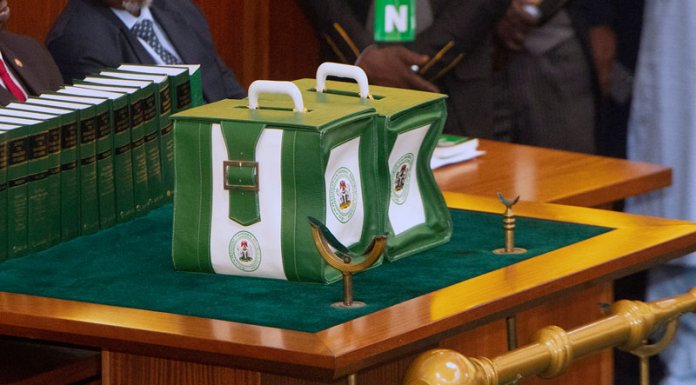
FG Anticipates N6tn Domestic Loan to Address Budget Shortfall – Report
Nigeria is projected to depend heavily on N6tn in domestic borrowing to address budget shortfalls.
According to a recent report by Afrinvest, titled ‘Bank Recapitalisation: Catalyst for a $1tn Economy’, the government is anticipated to secure N6tn from domestic sources to address these financial gaps.
“Hence, budget shortfalls are expected to be financed by domestic and external borrowings, with the former estimated to account for up to 66.8 per cent (N6.0tn) share,” the report stated.
It revealed that despite a positive revenue outcome, actual revenue exceeded budget projections by 7.6 per cent, reaching N11.9tn, adding the government’s expenditure had increased sharply.
The report indicated, “Despite actual revenue exceeding budget projections by 7.6 per cent to N11.9tn, aggregate expenditure has surged to N18.8tn, marking an increase of 31.8 per cent year-on-year.
“This substantial rise in spending has led to a significant budget deficit, which has risen by 26.6 per cent year-on-year to N6.9tn.”
It highlighted the growing national debt burden, noting that the share of the Federal Government’s debt in the total public debt stock had dramatically risen to N87.3tn, accounting for 89.7 per cent of the total public debt stock by the end of the year.
The report noted that the 2024 budget was based on optimistic revenue assumptions from oil.
Those assumptions, it said, were increasingly deemed unrealistic due to ongoing production issues and output ceilings imposed by OPEC+.
“Sadly, the 2024 budget of ‘Renewed Hope’ was also premised on overly optimistic revenue assumptions. This reality has increased the probability that actual budget performance could mirror the historically disappointing pattern, especially on capital expenditure spending. For instance, the expectation of a 43.9 per cent (that is, N8tn) share of the projected revenue from oil and other minerals is unrealistic.
“Our submission is based on the incessant sabotage in the oil-rich Niger-Delta region, the output drawdown for the recent crude-tied loan facility (the $3.3bn Afrexim Bank loan is collateralised with 90,000bpd crude oil for five years), and OPEC+ imposed output ceiling of 1.5 million barrels per day, beginning from May through year-end,” Afrinvest declared.
Looking ahead, the firm forecasted that the fiscal deficit could exceed N13tn.
According to the report, the total public debt stock is expected to surpass N130tn by the end of the year, with the debt-to-GDP ratio projected to rise to 55.0 per cent, up from 42.3 per cent in 2023.
The report also raised concerns about the banking sector, noting that attractive yields on risk-free government securities might divert funds from bank deposits.
It stated that the reliance on domestic borrowing highlighted the urgent need for more effective fiscal management.
“The reliance on domestic borrowing to bridge budget shortfalls underscores the need for more effective fiscal management and strategic planning,” it added.
